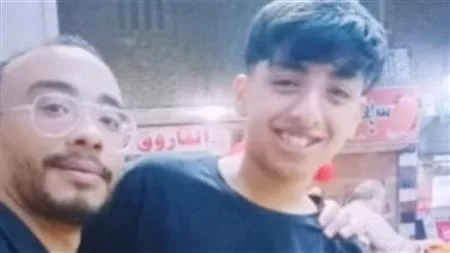The chilling case of a 15-year-old boy’s murder in Shubra El-Kheima, Egypt, has sent shockwaves through the community and beyond. The gruesome crime involved not just murder, but the dismemberment of the victim, all filmed to be sold as a snuff video on the dark web—a hidden part of the internet notorious for illegal and explicit content.
The Crime: A Gruesome Act Recorded on Camera
The Egyptian Public Prosecution launched an extensive investigation into the case, designated as case number 1820 for the year 2024, Shubra El-Kheima First Section. The investigation revealed that the victim’s body was found in a rented apartment, with several of his internal organs removed and placed in a nearby bag.
The primary suspect admitted to committing the crime upon the request of a Kuwaiti-based Egyptian national, whom he met through a social media platform involved in human organ trafficking. The suspect was instructed to find a child to kill and harvest organs for a payment of five million Egyptian pounds. He was to film the entire process via video call and later received instructions for selling the organs.
However, during the investigation, the authorities found no evidence of medical equipment indicating that the crime was solely for organ trafficking.
It appeared that the aim was to film the killing and dismemberment for distribution on the dark web, where such gruesome content is sold for considerable amounts of money.

The Kuwaiti-based suspect was apprehended after the Egyptian Public Prosecution’s International Cooperation Department coordinated with Kuwaiti authorities and INTERPOL. The investigation also implicated the father of the suspect, who had provided the phone used to communicate and orchestrate the crime. The suspects were extradited to Egypt for further interrogation and trial.
Dark Web: The Underground Marketplace for Illicit Content
The dark web is a hidden portion of the internet where users can operate with relative anonymity, often engaging in illegal activities such as drug trafficking, weapons sales, and, in this case, snuff films. To access the dark web, users typically need special software like Tor, designed to mask IP addresses and make it difficult for law enforcement to trace activities.
In this crime, the intention was to sell the recorded video of the murder and dismemberment on the dark web, where there is a disturbing demand for such content. Known as “snuff films,” these videos typically depict real-life violence, murder, or sexual abuse, often involving children.
The Egyptian case bears similarities to other high-profile cases of snuff films and child abuse videos. A particularly notorious example is “Daisy’s Destruction,” a snuff film by an Australian man named Peter Scully that was shot in the Philipines, depicting severe child abuse that shocked the world. This case, among others, highlighted the dark reality of the underground market for explicit content involving children and underscored the need for international cooperation to combat such crimes.
Egyptian authorities, recognizing the severity of the case, worked with Kuwaiti officials and INTERPOL to apprehend the suspects involved in this heinous act. The investigation revealed that the suspect in Kuwait used a phone belonging to his father to communicate with the primary suspect in Egypt, leading to both individuals being extradited to Egypt for further questioning and trial.
Combating Dark Web Crimes: The Need for Stronger Legislation
The gruesome nature of the Egyptian case has sparked a broader discussion about the role of the dark web in facilitating violent crimes. It underscores the importance of global cooperation and stronger laws to combat the production and distribution of snuff films and other explicit content. The dark web’s anonymity and decentralized nature make it challenging for law enforcement to track and prosecute those involved in such activities.
In response to this case, legal experts are calling for tighter regulations and updated legislation to address the growing threat of dark web-related crimes. While existing laws such as Egypt’s Law No. 175 of 2018 on combating cybercrime provide a framework, the rapid evolution of technology and online platforms demands a more aggressive approach to protect vulnerable individuals and bring perpetrators to justice.
Addressing the Impact of Dark Web Crimes
The case of the 15-year-old boy’s murder in Egypt is a stark reminder of the dangers lurking in the dark web and the impact it can have on innocent lives. As the investigation continues, authorities are focused on uncovering the full extent of the crime and ensuring that those responsible face justice. However, this case also highlights the need for ongoing vigilance and international cooperation to prevent similar tragedies from occurring in the future.
Through coordinated efforts between law enforcement agencies, legal experts, and technology providers, it is possible to combat the dark web’s dark side and protect vulnerable individuals from exploitation and harm. The fight against these heinous crimes requires a united front, ensuring that justice prevails and that such horrific acts are not allowed to persist.









What do you think?
It is nice to know your opinion. Leave a comment.